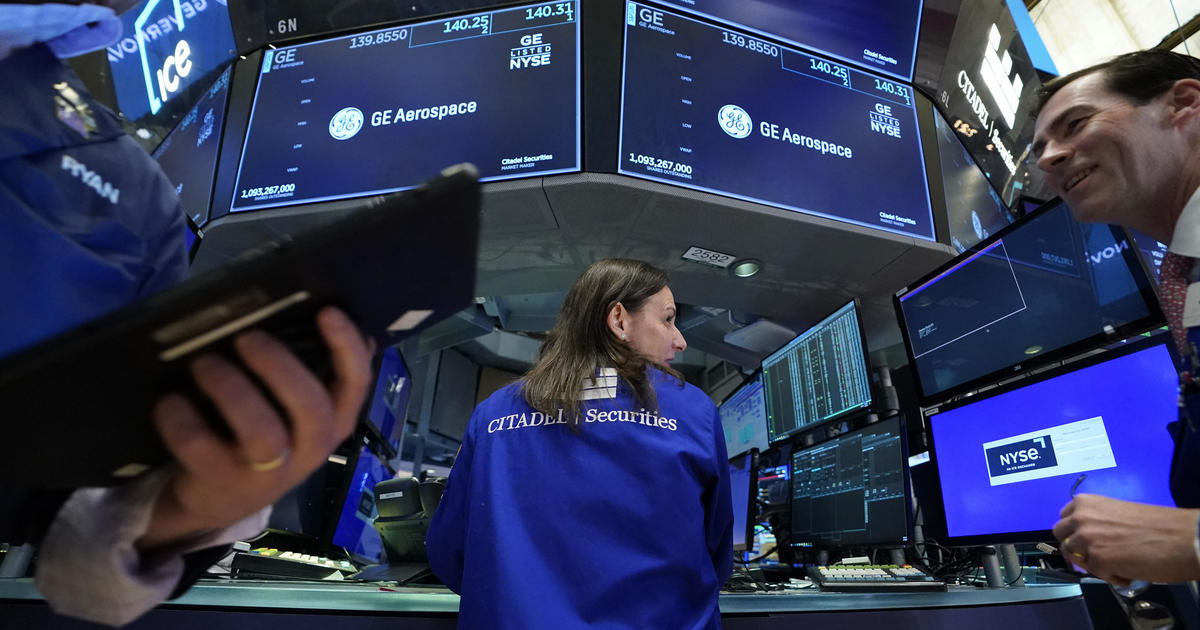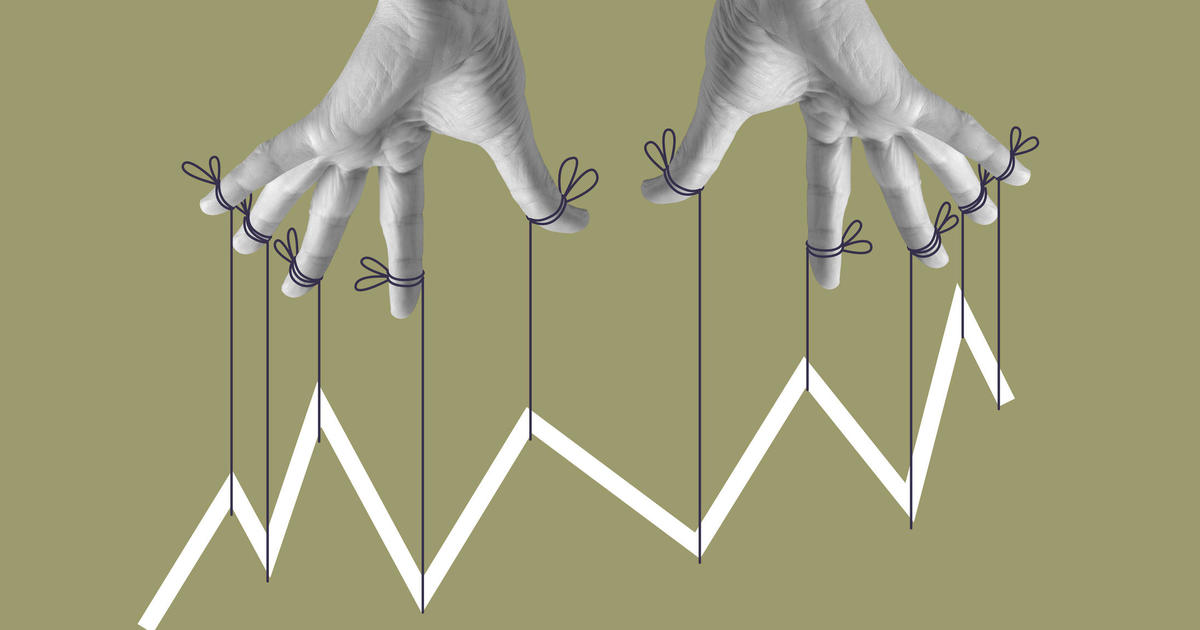Stocks lift off, as investors strap in for more volatility
U.S. stocks surged Monday following a wild week of reversals and sudden downturns that sent the market into correction territory.
The Dow Jones Industrial Average rose 410.37, or 1.7 percent, to 24,601.27. The S&P 500 and Nasdaq Composite indices also rose, with both gaining more than 1 percent.
The stock market has dropped from its Jan. 26 high of 26,567, with last week's sudden declines and volatile trading sparked by worries about a potential rise in U.S. inflation or interest rates. It took just nine days for stocks to plunge 10 percent from that peak. A drop of that size is known on Wall Street as a market "correction."
According to LPL Financial, it was the swiftest move from a record high to a correction in the history of the S&P 500. The index rose 1.5 percent Friday but still wound up with its worst weekly loss in more than two years.
Despite the two-day recovery, the S&P 500 is down 7.5 percent from its recent high, and investors expect far more volatility in the stock market than they did two weeks ago.
"Little has changed in terms of fundamentals," wrote Gaurav Saroliya, director of global macro strategy at Oxford Economics, in a research note on Sunday. "Yet investors' willingness to pay for one dollar of estimated earnings on S&P 500 has gone from $18.7 on 26 January to $16.8 on Friday."
Saroliya added, "Whatever we think about the precise triggers – be it higher rates driven by inflation surprises or a messy liquidation of volatility-sensitive investments – what's evident yet again is that psychology exerts a disproportionate impact on markets."
Defense contractor General Dynamics will spend almost $7 billion to acquire internet technology company CSRA. The Trump administration has been pushing defense spending aggressively higher. CSRA climbed $9.57, or 31 percent, to 40.39 on Monday. General Dynamics slipped $2.57, or 1.2 percent, to 209.53.
Retailers, apparel makers and other companies that focus on consumers made some of the largest gains. They held up relatively well during the steep downturn over the last two weeks, a sign that investors expect shoppers to keep spending and the economy to keep growing. On Monday General Motors picked up 54 cents, or 1.3 percent, to $42 and Netflix climbed $8.48, or 3.4 percent, to $257.95. It's up 32 percent since the beginning of the year.
Restaurant Brands International, the owner of Burger King and Tim Hortons, $3.44, or 6.1 percent, to $59.95 after a strong fourth-quarter report, and McDonald's gained $3.10 to $163.90.
Technology companies also rose. They have slumped recently after winning a big portion of the market's gains over the last year. Apple gained $6.30, or 4 percent, to $162.71 while Cisco Systems rose $1.07 to $40.60. Chipmaker Applied Materials climbed $1.42, or 3 percent, to $49.50.
Benchmark U.S. crude gained 62 cents, or 1 percent, to $59.82 a barrel in New York. Brent crude, used to price international oils, advanced 43 cents to $63.22 a barrel in London.
Oil prices have dropped since reaching long-time highs in late January, when U.S. crude peaked at $66 a barrel. The S&P 500 energy index is down 12 percent over the last month.
Twenty-First Century Fox picked up 67 cents, or 1.9 percent, to $36.40 after The Wall Street Journal reported that cable and internet provider Comcast is still interested in buying Fox's entertainment divisions and could make another offer. Disney agreed to buy Fox's movie and television studios and some cable and international TV businesses in December for about $52.4 billion in stock. Comcast also reportedly had talks with Fox.
Comcast stock slipped 3 cents to $38.54 while Disney added 30 cents to $103.39.
Bond prices edged higher. The yield on the 10-year Treasury note stayed at 2.86 percent.
High dividend companies continued to struggle. Real estate investment trusts declined and utilities didn't do as well as the rest of the market. They have taken bigger losses than any other S&P 500 sectors this year. Hospital property company HCP fell 37 cents, or 1.6 percent, to $22.85, and Boston Properties shed 21 cents to $115.14.
Investors will watch U.S. inflation and retail sales figures on Wednesday particularly closely as they review monthly reports from the U.S. Department of Labor and the National Retail Federation. Inflation in particular will be of interest as it could affect expectations of more rate increases the Federal Reserve. Fears of more aggressive interest rate hikes were one of the triggers of last week's stock market sell-off.
The dollar rose to 108.65 yen from 108.53 yen. The euro rose to $1.23 from $1.2231.



